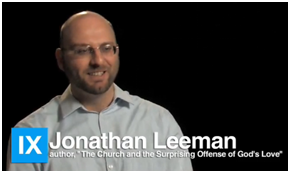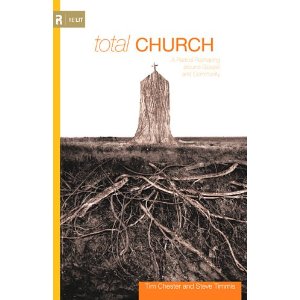Yesterday I visited my friendly neighborhood Whole Foods (I love that it is less than 2 miles from our new home) and walked out the door with this thought: “I gotta write a Danny Franks blog post”!
As I was standing in line I was casually listening to the customer in front of my interact with my cashier. The skinny jean wearing, burlap bag carrying customer was buying her very first Pacific Rose apple. She had never had it before. The cashier was telling her what kind of apples she did like and why she didn’t like red apples (the skin is too thick). The purpose of this blog isn’t to discuss apples, but to discuss how we can be like this Whole Foods cashier in our local church.
I’ve never met a rude or unfriendly Whole Foods cashier. They always want to talk to you, see how you are, they are interested in what you are buying, etc. This friendliness needs to happen in our churches as well. I’ve been in some grocery stores where the cashiers hardly speak to you, they have a scowl on their face, and just want to do their job. I’ve been in some churches where that is the case, too.
My husband and I recently visited a church in Orlando. The winning factor about this church was the friendliness of their people. We walked in and over to the Information desk to see where the nursery was in case we needed it for LB. Before we got to the desk, we were greeted by the pastor, then another person showed us where the cry room, nursing moms room, and nursery were located. Then he handed us a bulletin. We sat down in the back row, and before the service started at least 5 people came to talk with us: elders and regular members a like. While I could just claim they wanted to see baby - this was not the case. They were asking us about where we were from, why we were in Orlando, if we had been to this type of church before, how we heard of it, etc. What a great experience.
I’ve been in some churches that I was there the entire service and before and after and not one person spoke to me. Well, maybe that’s an exaggeration. I was greeted at the door and during the obligatory “shake hands” time a few in front of me turned around to say hi. That was it. That is a sad realization in most of our churches.
Here are some practical ways that you can make sure your church has a friendly atmosphere to those visiting, or even members.
1. Have someone at each door to greet those walking in. This may seem like a no-brainer but it doesn’t happen in every church. Even after the service starts, I would have someone in the main entrance because there are always late-comers.
2. Have a welcome time for first-time guests after the service. I say this because it is very awkward for first timers, especially unbelievers, to stand up or where a funky name tag, or wave their hands or something during the meet and greet. But, they will come to talk with some folks after the service.
3. As regular members of the church - talk to people. If you know them, if you don’t know them…talk. Say hello. Comment on a necklace. If you’ve never seen them introduce yourself and ask how long they’ve been coming to the church.
These are just a few examples. There are many more. Be creative. The church we are attending now is very good at friendliness before and after. We’ve been warmly welcomed here - even on the first Sunday we ever visited and no one knew who we were - it was great.
Make your church like a friendly, neighborhood Whole Foods: a company who loves what it offers and wants others to benefit as well!




